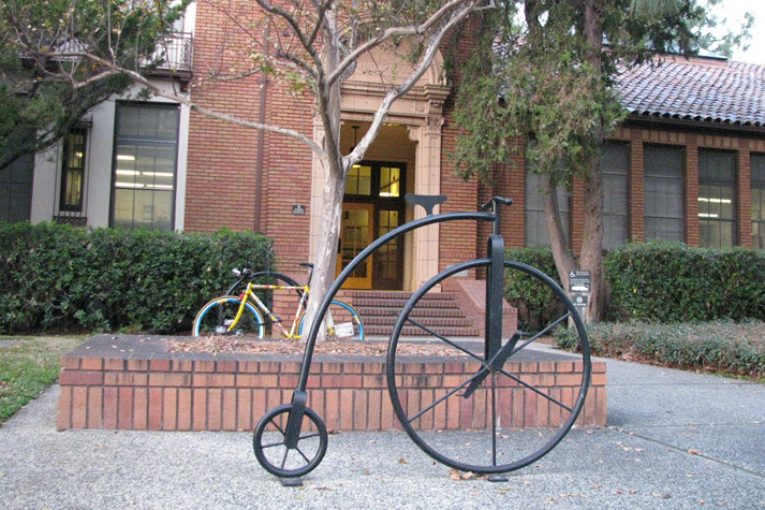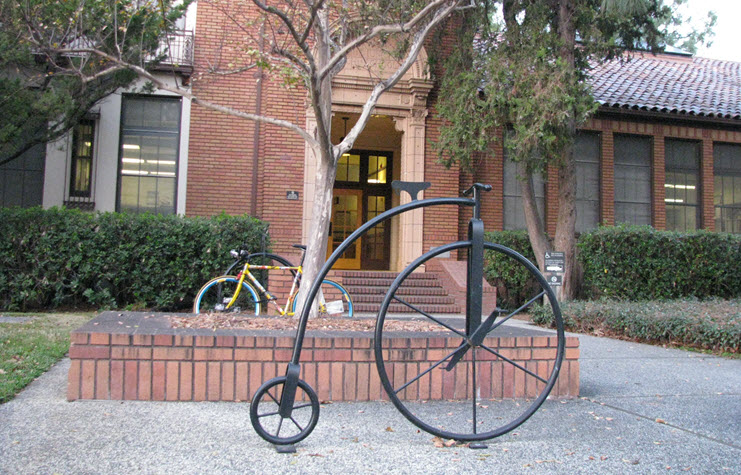

By Alan Hirsch
The controversial city council plan for commission consolidation and refocus is going into effect this summer. This is a rare opportunity for reform I hope is not missed.
Let us begin by restating the overarching goals council set forward in this reform:
Davis Council Resolution 24-079 May 2024
Guiding Principle for New Commission Structure
City Commissions should act at all times with the understanding that guiding principles are at the core of their work.
- Promote and embrace diversity, equity, and inclusion
- Prioritize environmental and social justice
- Make space for community engagement
- Balance environmental and fiscal sustainability
- Strive for innovation and human progress
The first meeting of the new Climate and Environmental Justice Commission on 7/22 Monday is precedent setting as it can begin to put implementation meat on the bone of these  principles by:
principles by:
- Better Prioritize Environmental Justice than in the past (principal B)
- Change meeting practices to allow more public participation. (principle A & C)
- Speed surfacing of new ideas and follow through on their implementation. (principle E
As a first step in embracing council principles for this reorganization, I suggest the commission’s pass a resolution to establish these ground rules for operation
- Public can speak for 3 minutes as a default- (subject to change on case-by-case basis due to time requirement and number of speakers).
- To increase public participation, put meetings on zoom and allow zoom comments as in past and Record meeting for later viewing for those who cannot participate real time. I note this meeting does not seem to be on zoom.
- If a picture is worth 1000 words, and community voices are to be fully heard, th4e public should be allowed to present power point slides…as was practice universally until recently at all city meetings.
- All documents given to committee by members of public should be included in either the published committee minutes or agenda as appropriate, just as staff documents are.
- Just as at council meetings, commissioner should be encouraged to ask question of member of public, just as they do of City staff. There is no limit on this back and forth with public under the Brown Act. The Brown act is a floor, not a ceiling, to public participation in meeting.
- At the discretion of chair, addition speaker time should be allowed community speakers based on their special expertise and longtime knowledge of the city. As an example, our university has world class experts whose voice could aid to the commission in areas our small staff lack. And engage some longtime member of community to act as institutional memory staff can lack. Or maybe a member of public has unique experience in a specific case- i.e. at tree removal hearing the Tree Commission typically waved the 3-minute rule for the community member who’s house the tree was on to share their experience. The commission should, at is discretion have the right to fully avail themselves of this expertise.
- By advanced agreement of committee, member of public should be able to make extended presentation for an agenda item, or even be asked to present to committee on agenda item proposed by the commission that staff won’t be presenting on. By making this an agenda item not just an extended public comment it allows the Commission to engage in discussion and questions if it desires. The now defunct Tree Commissions and Utilities Rate Commission did this from time to time.
- If Innovation is a goal, the Commission’s agenda should in control of commission chair and vice chair, not staff. While commission work is in collaboration with staff, the commission are independent creatures of council, not just staff driven. Everyone know bureaucracy by its nature can often be biggest barrier to change- and the best way to slow change is to block ALL discussion of an item by not putting it on the agenda.
Living up to the Environmental Justice name. I believe renaming the old Natural Resources Commission as the “Climate and Environmental Justice Committee” was more than a performative gesture but call for more focused on the values of Climate Change and Justice — As such new commission are a chance to interrogate barriers to public participation and slowness to innovate to address this.
But for change to happen Council Participation is Key. Renaming and reshuffling responsibility between commissions is not enough to make this sort of deep reform happen. Council members need to be in the room at these early meetings, championing changes in process with to a more citizen-driven agenda to challenge the “old guard”- city staff and dare I say, “grandfathered in” commissioners who are used to the previous ways of doing thing.
============
Coda: Where does Institutional change come from?
Culture eats Strategy for breakfast. Bureaucracies rarely change themselves from within- at least not rapidly. Institutions are conservative (or if you will careful) by nature — protective of the way things are that work ‘well enough”. This is not a judgement on the people in our current government, just an observation of the bias in organizations.
I belief if council want to see the changes they envision, they will have to intervene actively to set a new style.
I am here, tapping into ML King observation on barrier to Justice in 1960’s in integrating the South. He thought his main barriers were not those who denied the need for change, but the moderates who said, “yes we need to integrate with the Black man, but just not yet”.
Alan Hirsch is the “Davis Lorax”
